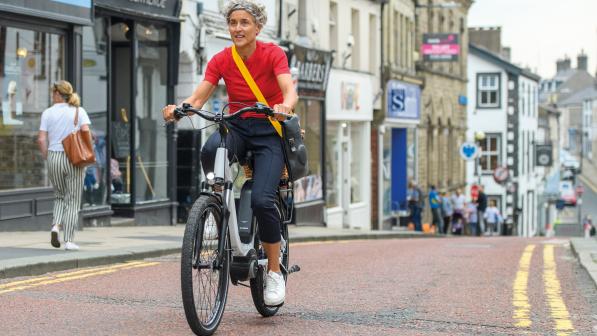Keeping your employees motivated to cycle when working from home

Coronavirus has caused significant global disruption, economic uncertainty, unemployment, and rapid transformation for many organisations. Working from home has become commonplace for millions of people as a consequence of coronavirus risk.
However, working from home presents a set of challenges for organisations which haven’t been encountered previously on this scale. Technology and the work environment have advanced so far in the last year, it has re-defined the concept of 'the workplace'. Yet, organisations must manage this transformation by balancing the rapid change with the long-term health and wellbeing of employees.
Understanding where your risks lie is important, and one of these is employee fatigue, and understanding their health and wellbeing needs. Many organisations are running at double speed trying to meet the requirements of the new ‘normal’ they’re faced with. Extra pressures and demands are therefore falling on employees at a time when they themselves are personally dealing with the fallout of the crisis, in some cases coping with bereavements, poor mental and physical health, and childcare issues.
Encouraging cycling doesn’t have to be time consuming, and it’s inexpensive to do which explains why so many firms are committing to supporting their employees to cycle more during their work week.
Consider the following questions:
How often are your staff taking a break from their screen?
Remaining indoors, in the same working and living environment may make it hard for employees to switch off and create the defined boundary between work and home life. For some, the restrictions have meant limited contact with other people, so making sure your employee can go for a socially distanced ride via a buddy scheme can be an effective way of keeping your staff motivated and engaged. Please note that restrictions on movement may affect some people in the area.

How often do you build in time for physical activity?
If you already carve out ‘breaks’ in the working week, then creating a session around cycling can be especially beneficial. If you’re flexible and open as an organisation, then building this time in can be important.
Are you developing workplace challenges to keep your employees engaged?
You must consider those who regularly cycle to work as they’ll be missing out on vital exercise, headspace to de-stress and the overall health benefits of their daily cycle commute. Whether consciously or unconsciously, the coronavirus restrictions will be having an impact on the wellbeing of your employee(s).
Over time this will have an impact on their work, and if you’re looking to maximise their wellbeing, a great way to do this is through workplace challenges. Some ideas on workplace challenges can be anything from staff cycling leaderboard activity, to photo competitions or even setting challenges of your own.

How are you supporting those who are looking to cycle to work in the future?
In May, transport secretary Grant Shapps announced a £2m funding pot for cycling, so it's never been higher on the Government agenda, which means more support is available for your organisation to assist with encouraging your employees to cycle.
However, there are lots of ways you can support your employees to cycle to work in the future. By continuing to show your commitment to cycling, and by engaging in a positive cycling to work culture, more people will feel confident to give it a try.
We offer specific advice through our guides on commuting tips, to journey planners and have a whole host of materials to support your employees to cycle.
Furthermore, as an organisation, if you haven’t made the commitment yet, consider becoming a Cycle Friendly Employer. Having an accreditation will demonstrate your commitment to the health and wellbeing of your employees and make you attractive to new employees. If you are already an accredited CFE business and would like more support please do email us.



